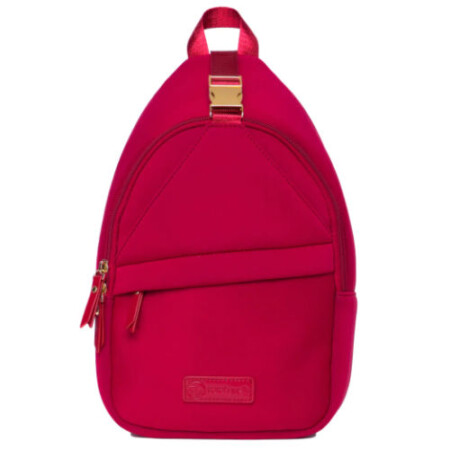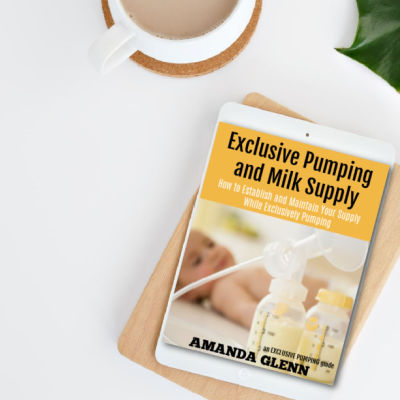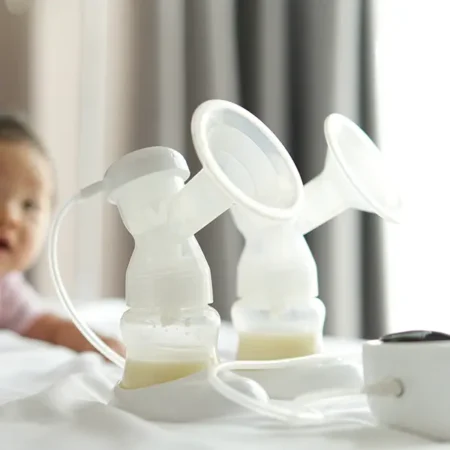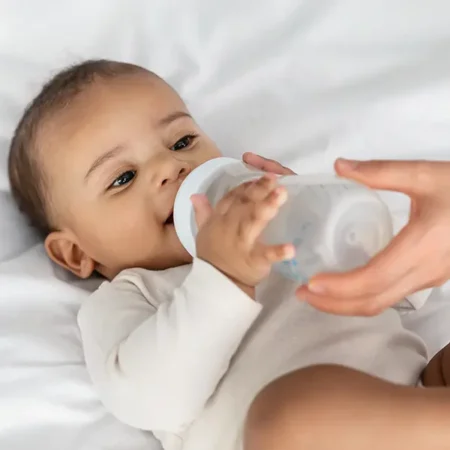Have you wanted to have a drink or two at a special occasion, or even just after a rough day, but you weren’t sure whether or not you could have alcohol while breastfeeding? Here’s what you need to know about how alcohol might affect your baby, when you should pump and dump, and when it’s not necessary.

This post may contain affiliate links, which means if you click a link and purchase something, I may make a small commission at no additional cost to you. I only recommend products I love! More information here.
Alcohol and breastfeeding: What do experts recommend?
Reading recommendations about alcohol and breastfeeding can be very confusing. For example, you’ll find the following, by Jack Newman, a breastfeeding expert:
“Reasonable alcohol intake should not be discouraged at all. As is the case with most drugs, very little alcohol comes out in the milk. The mother can take some alcohol and continue breastfeeding as she normally does. Prohibiting alcohol is another way we make life unnecessarily restrictive for nursing mothers.”
To this, from Baby Center:
“While no one knows the true effect that alcohol has on breastfed infants, it’s probably wise to abstain – at least in the very beginning.”
So – should you abstain from alcohol completely, or is reasonable alcohol intake okay? And what is considered “reasonable”?
How does alcohol move into (and out of) breast milk?
A common misconception is that after a breastfeeding mother drinks alcohol, she needs to pump (and dump the milk) in order to remove the “bad” breast milk containing alcohol from her breasts before she resumes feeding.
This isn’t how it works.
Alcohol moves out of your breast milk just like it moves out of your blood. After enough time has gone by, your body will process the alcohol, and it will pass out of both your breast milk and your blood.
Exactly how much time this take varies, depending how much you drink, your body weight, how much food you’ve eaten, your body fat percentage, etc.
Breast Pump Bags
When SHOULD you pump and pump? When is it not necessary?
If you are away from your baby or abstaining from nursing because you are drinking, you should try to pump as often as you normally would in your pumping schedule (if you are an exclusive pumper) or as often as you would nurse your baby (if you are a nursing mom). This is to maintain your milk supply and to avoid clogged ducts or mastitis.
If you are drinking and would NOT normally be nursing or pumping, as stated above, there is no need to “pump the alcohol out.” It will move out of your milk with time.
As time goes on, you can evaluate whether or not you should give the milk you pump to your baby based on your baby’s age, the amount you drank, the length of time in between consumption of alcohol and pumping, and how you feel. Per Hale:
[M]others who ingest alcohol in moderate amounts can generally return to breastfeeding as soon as they feel neurologically normal.
Because the amount of alcohol in your breast milk is the same as in your bloodstream, you can use how you feel as a guide as to how much milk is in your breast milk.
Pump and dump? Example: A glass of wine at date night

Say that you have one glass of wine when you’re out to dinner on a date night, and you feel sober when you get home two hours later. If you missed a pumping or nursing session while you were out, then you should pump, and it is probably fine to store that milk to feed your baby later.
If your baby is less than 3 months old, you could freeze the milk and feed it to them when they are older if you wanted to be extra cautious.
Pump and dump? Example: Bachelorette party
Let’s say in this scenario you’re going out at 6pm and will be drinking well into the night. Obviously, your baby would be with another responsible adult during this time.
I would suggest pumping right before the festivities kick off, and then again as the night goes on as often as you would normally pump or nurse – or as close to that as you can get.
If you don’t want to carry your giant pump to the party, one option is to bring a hand pump that you can put in a zip top plastic bag in your handbag.
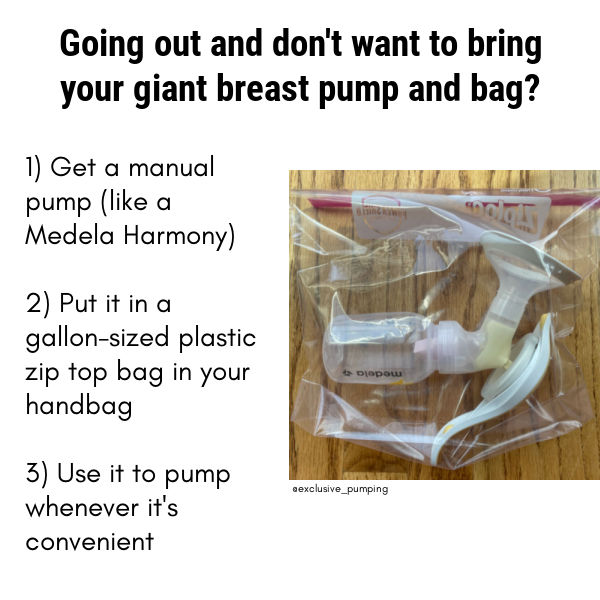
You can store and feed the first milk that you pump, because it won’t have any alcohol in it. After that, you will probably want to dump everything you pump, unless you are drinking so little that you still feel neurologically normal. When you feel normal again, you can resume storing the milk to feed.
Note: By “dump,” I don’t necessarily mean to you have to pour it down the drain. You can always use it to make breast milk jewelry, for a milk bath, etc. I just mean don’t feed it.
If you’re not sure about feeding the milk that you pump, or just want to be extra safe, you could test your milk with Milkscreen strips. More on these here.
Need help with exclusive pumping? Use EP20 for 20% off
What factors influence whether alcohol will affect a breastfed baby?
Let’s look in a little more detail about what factors influence the possible impact of alcohol on a breastfed baby, and what those impacts might be.
How alcohol might affect a baby depends on three things: the age of the baby, maternal alcohol intake at any given time, and the exposure to alcohol intake over time.
1) Baby’s age
Because a newborn’s liver is still maturing, he or she may not be able to metabolize alcohol as well an older baby or child:
Due to liver immaturity, infants detoxify alcohol at about half the rate of adults until they are at least 3 months old. Alcohol exposure to a younger baby can be far more detrimental than to an older infant.
2) Maternal alcohol intake (at one time)
Another factor is the amount that is consumed at one time; one beer is obviously different than having five shots of Tequila.
Most experts consider small amounts of alcohol to be not harmful for a breastfed baby. From Thomas Hale:
“The absolute amount (dose) of alcohol transferred into milk is generally low and is a function of the maternal level…. Significant amounts of alcohol are secreted into breast milk although it is not considered harmful to the infant if the amount and duration are limited.”
So how much is considered harmful? Because there hasn’t been a lot of research on the topic, we don’t know for sure. The American Academy of Pediatrics suggests a limit of about two drinks, depending on your weight:
[N]o more than 0.5 g alcohol per kg body weight, which for a 60 kg mother is approximately 2 oz liquor, 8 oz wine, or 2 beers.
Note that 60kg is 132 pounds.
The Academy also notes that nursing or pumping milk that will be fed to baby should occur two or more hours after ingesting the alcohol.
3) Exposure to alcohol over time
The other concern is continued exposure to alcohol, as opposed to on one particular day.
Some studies have shown effects on babies who were exposed to alcohol daily, as opposed to less often.
Therefore, many experts suggest drinking alcohol on a more occasional basis while breastfeeding, rather than every day.
What are the possible impacts of alcohol on a breastfed baby?
We know that the risks of drinking during pregnancy include, for example, the baby developing fetal alcohol syndrome (FAS). But what affect can alcohol have on a baby during breastfeeding?
Below is a summary of the research that has been done on the effects of alcohol on breastfed babies. Some of the risks identified include:
- Decreased gross motor development. One 1989 study showed that infants that were exposed to alcohol at least once daily may experience decreased gross motor development. A subsequent study was not able to replicate this finding.
- Poor infant sleep. A small 1998 study showed that infant sleep may be negatively affected for up to 3.5 hours after an infant drank “alcohol flavored” breast milk. A second study in 2001 replicated this finding and found that the infants compensated for this negatively affected sleep over in the subsequent 20.5 hours.
- Drowsiness, deep sleep, weakness, and abnormal weight gain in growth. The American Academy of Pediatrics notes that this can occur with the ingestion of large amounts of alcohol.
Again, note that the research is limited, especially on maternal use of large amounts of alcohol; there may be other affects that have not be identified.
Hopefully this helps give you some context to expert recommendations around alcohol and breastfeeding and when to pump and dump. Let us know in the comments if you have any questions!

References
- American Academy of Pediatrics. https://pediatrics.aappublications.org/content/129/3/e827.full#sec-21
- Bonyata, Kelly, IBCLC. “Breastfeeding and Alcohol.” Kellymom. https://kellymom.com/bf/can-i-breastfeed/lifestyle/alcohol/
- Fisher, Denise. “Social drugs and breastfeeding.” Health E-Learning. https://www.health-e-learning.com/resources/articles/social-drugs-and-breastfeeding
- Jacobsen, Hilary. “Malt as a Galactogogue – A Brief History.” http://lactogenicdiet.blogspot.com/2011/10/malt-as-galactagogue-brief-history.html
- La Leche League. “Drinking Alcohol and Breastfeeding. La Leche League International. https://www.llli.org/breastfeeding-info/alcohol/
- Little, Ruth, et al. “Alcohol, Breastfeeding, and Development at 18 Months.” Pediatrics. https://pediatrics.aappublications.org/content/109/5/e72.full
